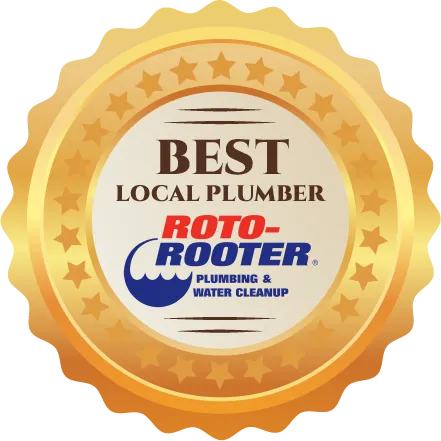Benefits of Enzyme-Based Vs Traditional Drain Cleaners
When you’re dealing with a clogged drain in places like New York City, where older plumbing systems are common, choosing the right cleaner can be a crucial decision. Traditional chemical cleaners might seem like the go-to option, but have you thought about enzyme-based alternatives? These eco-friendly solutions offer a safer and more sustainable way to address blockages without the risk of corroding aging pipes or exposing residents to harmful fumes, which can be a significant concern in densely populated urban environments. Enzyme-based cleaners might just be the solution you didn’t know you needed. Curious about how they compare?
Understanding Enzyme-Based Drain Cleaners
When dealing with clogged drains in coastal regions, understanding enzyme-based drain cleaners can be a game-changer. In these areas, the high humidity can exacerbate the build-up of organic waste like hair, soap scum, and food particles.
Enzyme-based cleaners use natural enzymes and bacteria to break down this gunk, turning it into harmless substances that easily wash away with water. Residents in such locales will appreciate that these cleaners are eco-friendly, posing no harm to pipes or the surrounding marine environment.
Unlike harsh chemicals, enzyme-based cleaners are safe to use regularly and won’t corrode plumbing, which is especially important in areas with older infrastructure. They’re ideal for maintaining clear drains over time without the risk of damage.
How Traditional Drain Cleaners Work
In regions with older plumbing systems, such as historic districts or older urban areas, traditional drain cleaners face unique challenges. These cleaners typically utilize potent chemicals like sodium hydroxide or sulfuric acid. When introduced into the drain, these substances react with the clog, breaking it down and generating heat to swiftly dissolve grease, hair, and other debris.
This rapid process can be particularly advantageous in areas where older pipes are prone to frequent blockages.
However, caution is paramount. In areas with aging infrastructure, it’s crucial to use these cleaners judiciously to avoid damaging fragile pipes. Always wear protective gloves and eyewear, as the chemicals can cause burns or irritation.
Ensure your space is well-ventilated to prevent inhaling potentially harmful fumes. Adhering to the instructions on the label is essential to ensure both safety and effectiveness in these specific environments.
Comparing Effectiveness in Clearing Clogs
In areas with hard water, such as parts of the Midwest, mineral buildup in pipes is a common issue. Traditional drain cleaners, with their potent chemical formulations, are particularly effective in these regions for dissolving stubborn mineral deposits and grease clogs that can frequently occur.
However, in neighborhoods where older plumbing systems are prevalent, these harsh chemicals can potentially damage pipes over time, making them less ideal for regular use.
Conversely, in coastal areas with high humidity, like the Southeastern United States, organic blockages such as hair, soap scum, and food particles are more common. Enzyme-based cleaners are well-suited for these environments as they use natural bacteria to gradually break down organic matter, offering a gentler, eco-friendly alternative to prevent future clogs without risking damage to pipes.
Thus, when selecting a drain cleaner, consider the specific plumbing challenges typical in your region. Tailoring your choice to the nature of local blockages ensures more effective and safe maintenance of your drainage system.
Safety Considerations for Household Use
Choosing the right drain cleaner not only impacts efficiency but also safety within your home. When selecting between enzyme-based and traditional cleaners, consider their safety profiles.
Enzyme-based cleaners rely on natural bacteria and enzymes to break down clogs, making them safer for your family and the environment. This is particularly important in areas with high humidity, where ventilation can be limited, as it reduces the risk of harmful fumes filling your living space. Additionally, homes near coastal areas can benefit from enzyme-based products, as they’re less likely to corrode plumbing systems that may be more vulnerable due to salty air exposure.
Traditional cleaners, on the other hand, often contain strong chemicals like lye or sulfuric acid. These can be hazardous, especially in densely populated urban areas where space and ventilation might be restricted, requiring you to take precautions like wearing gloves and ensuring proper ventilation.
Accidental exposure can lead to skin burns or respiratory issues, and such risks are heightened in regions prone to extreme weather conditions where windows may need to be kept closed. Protect your household by choosing products that promote a safer environment, reducing risks associated with chemical-based cleaners.
Impact on Plumbing Systems
In areas with older infrastructure, such as cities with historic homes and buildings, the impact of drain cleaners on plumbing systems is a significant concern.
Enzyme-based cleaners offer a gentle approach by utilizing natural bacteria to break down organic material. This method is particularly beneficial in regions with older or delicate plumbing systems, as it poses less risk of corrosion or degradation over time, thus extending the lifespan of the pipes.
Conversely, traditional drain cleaners, which often contain harsh chemicals like lye or sulfuric acid, can pose challenges in these areas. While effective at quickly removing blockages, frequent use may lead to the corrosion of metal pipes or the weakening of PVC, which is a common material in many historic and older properties.
This can result in potential leaks and costly repairs. Therefore, opting for enzyme-based solutions can be a prudent choice for maintaining the health of plumbing systems in locales with aged infrastructure, reducing the risk of damage while ensuring efficient drainage.
Environmental Benefits of Enzyme-Based Solutions
When exploring eco-friendly cleaning alternatives, enzyme-based drain cleaners stand out for their substantial environmental benefits, particularly in areas struggling with water pollution and waste management, such as California’s coastal regions.
These solutions use natural enzymes and bacteria to break down organic waste, ensuring they’re biodegradable and safe for the local ecosystem. Unlike harsh chemical cleaners, enzyme-based options don’t introduce toxic substances into water systems, reducing the risk of pollution in these vulnerable areas. By choosing enzyme-based cleaners, you’re contributing to the preservation of aquatic life, as they won’t disrupt California’s delicate marine habitats or harm its diverse wildlife.
Moreover, enzyme-based cleaners don’t release harmful fumes into the air, which is especially beneficial in urban centers like Los Angeles where air quality is a significant concern.
This means residents can use them without worrying about worsening air pollution. By opting for these eco-friendly choices, individuals are actively supporting a cleaner environment, one drain at a time.
Make a conscious choice and help foster a positive impact in your community.
Potential Health Risks of Chemical Drain Cleaners
Chemical drain cleaners, though widely used in many areas, pose several health risks that are often overlooked. For instance, in regions with hard water, the interaction between these cleaners and mineral deposits can exacerbate pipe corrosion, leading to plumbing issues.
When you pour these products down the drain, you’re dealing with corrosive chemicals like lye and sulfuric acid. If you accidentally splash some on your skin, it can cause severe burns. Breathing in the fumes isn’t safe either—these can irritate your eyes and lungs, potentially leading to respiratory issues.
In areas with high humidity, such as coastal regions or places with frequent rainfall, the fumes from chemical drain cleaners can linger longer in the air, increasing the risk of respiratory problems.
Moreover, if you’ve got curious kids or pets at home, there’s always a risk they might get into these toxic substances. Ingesting them can result in serious injury or even be life-threatening.
Always handle chemical drain cleaners with extreme care, and think about safer alternatives that can keep your home environment healthier, especially in locations where environmental factors might amplify the risks.
Cost Comparison and Long-Term Savings
Although both enzyme-based and traditional drain cleaners aim to clear clogged pipes, their cost and long-term financial impact differ considerably, especially when considering location-specific challenges.
For instance, in coastal areas like San Francisco, where the corrosive nature of saltwater can already pose a threat to plumbing systems, traditional cleaners that rely on harsh chemicals might exacerbate the issue by further corroding pipes. This could lead to costly repairs and replacements.
Enzyme-based options might initially seem more expensive, but they often lead to significant savings over time. These cleaners use natural enzymes to break down organic waste, which can prevent frequent blockages and reduce the need for repeated purchases.
By choosing enzyme-based products, you invest in the longevity of your plumbing system, which is particularly important in areas where the infrastructure is already under stress from environmental factors.
Additionally, because they’re less likely to damage pipes, you’ll avoid the hidden costs of emergency plumbing services.
In the long run, enzyme-based cleaners offer a more economical and sustainable solution for maintaining clear drains, making them a smarter choice for residents in regions with challenging environmental conditions.
User-Friendliness and Application Methods
Considering the financial benefits of enzyme-based drain cleaners, it’s also important to look at how easy they’re to use, especially in areas with hard water issues, like the southwestern United States. In these regions, mineral deposits can exacerbate clogs, making enzyme-based solutions particularly effective.
With these cleaners, you simply pour the recommended amount into the drain and let the natural enzymes work their magic, usually overnight. There’s no need for harsh chemicals or protective gear, making them a safer choice for households, especially in places with strict chemical disposal regulations such as California.
Traditional drain cleaners, on the other hand, often require you to measure out specific amounts and sometimes involve mixing. In humid climates, like the southeastern United States, the strong odors from these cleaners can linger longer, necessitating proper ventilation.
Additionally, in states with stringent safety regulations, like New York, you might need gloves and goggles to protect against splashes, adding an extra layer of complexity to their use.
Choosing the Best Option for Your Needs
When deciding between enzyme-based and traditional drain cleaners, how do you choose the best option for your needs? First, assess the severity of your clog.
In areas with hard water, like Phoenix, minor, organic blockages are common, and enzyme-based cleaners can be effective and environmentally friendly. They work gradually, making them ideal for maintenance and preventing future clogs.
However, regions with older plumbing systems, such as many parts of New York City, might face stubborn blockages. In such cases, traditional chemical cleaners, which are often more potent and act quickly, can be necessary. Keep in mind, though, that they can be harsh on pipes and the environment.
Consider your household’s sensitivity to chemicals, particularly in places like Portland, where there’s a strong focus on eco-friendly living. Enzyme-based cleaners are safer for homes with pets and children.
Also, think about cost and frequency of use. In cities with a higher cost of living, like San Francisco, enzyme solutions might require regular application but offer a long-term, sustainable approach that aligns with local sustainability goals.
Evaluate these factors to make the best choice.
Conclusion
When deciding between enzyme-based and traditional drain cleaners, it’s essential to consider the long-term benefits, especially in regions experiencing harsh winters. In areas with freezing temperatures, plumbing systems are often vulnerable to cracks and blockages due to ice and debris buildup. Enzyme-based cleaners are not only eco-friendly and safe but also gentle on your plumbing, reducing the risk of damage and health hazards in such challenging climates. Traditional cleaners might offer quick fixes; however, they can harm your pipes, exacerbate existing issues, and expose you to toxic fumes. Ultimately, choosing enzyme-based options guarantees a safer home environment and promotes sustainable plumbing care. Opt for enzymes for effective, worry-free maintenance and peace of mind, particularly in places where maintaining robust plumbing systems is crucial due to weather challenges.
Tags





